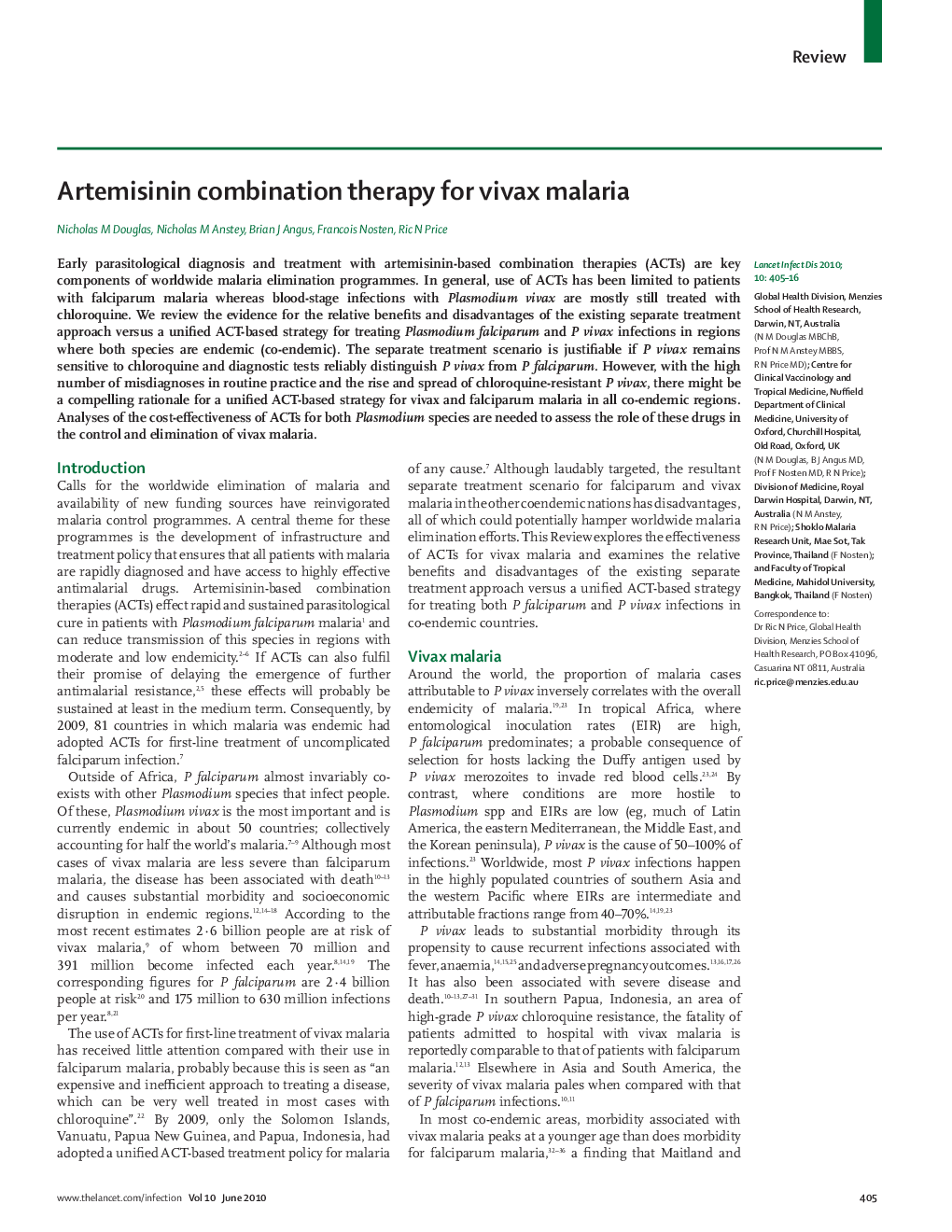| Article ID | Journal | Published Year | Pages | File Type |
|---|---|---|---|---|
| 3410619 | The Lancet Infectious Diseases | 2010 | 12 Pages |
SummaryEarly parasitological diagnosis and treatment with artemisinin-based combination therapies (ACTs) are key components of worldwide malaria elimination programmes. In general, use of ACTs has been limited to patients with falciparum malaria whereas blood-stage infections with Plasmodium vivax are mostly still treated with chloroquine. We review the evidence for the relative benefits and disadvantages of the existing separate treatment approach versus a unified ACT-based strategy for treating Plasmodium falciparum and P vivax infections in regions where both species are endemic (co-endemic). The separate treatment scenario is justifiable if P vivax remains sensitive to chloroquine and diagnostic tests reliably distinguish P vivax from P falciparum. However, with the high number of misdiagnoses in routine practice and the rise and spread of chloroquine-resistant P vivax, there might be a compelling rationale for a unified ACT-based strategy for vivax and falciparum malaria in all co-endemic regions. Analyses of the cost-effectiveness of ACTs for both Plasmodium species are needed to assess the role of these drugs in the control and elimination of vivax malaria.
